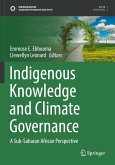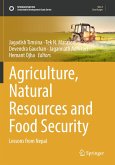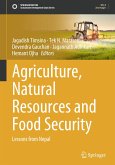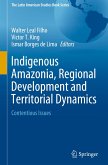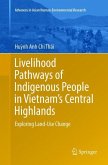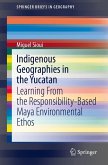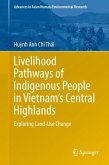This book investigates indigenous knowledge systems (IKS) in sub-Saharan Africa, thereby highlighting its role in facilitating adaptation to climate variability and change, and also demystifying the challenges that prevent it from being integrated with scientific knowledge in climate governance schemes. Indigenous people and their priceless knowledge rarely feature when decision-makers prepare for future climate change. This book showcases how Indigenous knowledge facilitates adaptation to climate change, including how collaborations with scientific knowledge have cascaded into building people's resilience to climatic risks. This book also pays delicate attention to the factors fueling epistemic injustice towards Indigenous knowledge, which hampers it from featuring in climate governance schemes across sub-Saharan Africa.
The key insights shared in this book illuminate the issues that contribute meaningfully towards the actualisation of the UN SDG 13 and promote mechanismsforraising capacity for effective climate change-related planning and management in sub-Saharan Africa.
Hinweis: Dieser Artikel kann nur an eine deutsche Lieferadresse ausgeliefert werden.
The key insights shared in this book illuminate the issues that contribute meaningfully towards the actualisation of the UN SDG 13 and promote mechanismsforraising capacity for effective climate change-related planning and management in sub-Saharan Africa.
Hinweis: Dieser Artikel kann nur an eine deutsche Lieferadresse ausgeliefert werden.


